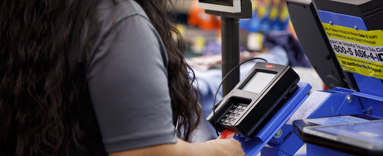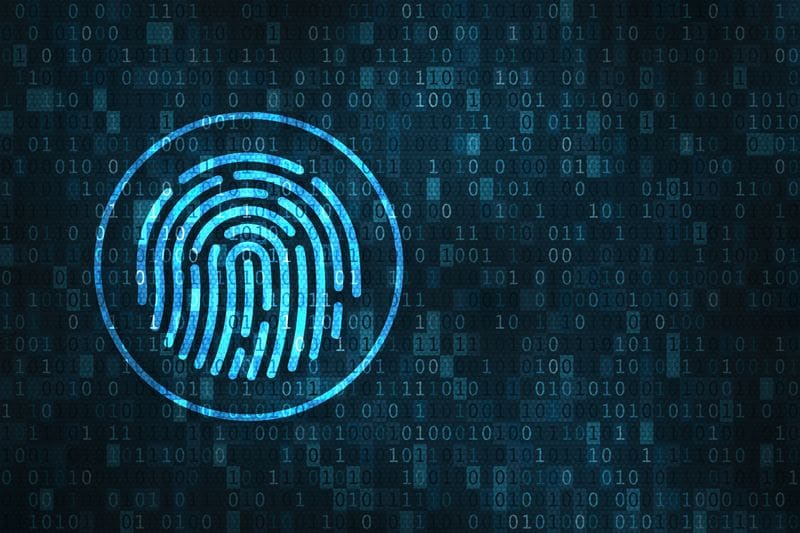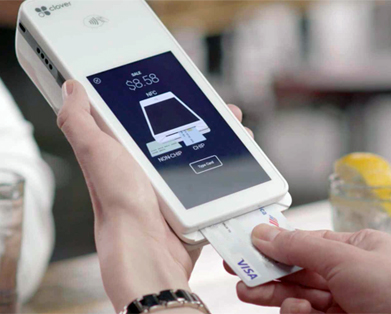Biometric banking and financial services of various kinds are making headlines around the world, with legal and regulatory changes in Russia and Mexico, pushes for biometric ATMs in Pakistan and Argentina, and Aadhaar authentication substituting for ATMs in India. Buguroo sees the trend increasing to meet regulatory needs, and Idemia has expanded a relationship with a South African bank.
At the same time, new statistics from IDC show artificial intelligence is the top investment area for the financial services sector in the Asia-Pacific region, with spending set to grow by a CAGR of 22.1 percent from 2019 to 2024 to reach $4.29 billion, according to Channel Life Australia. The banking sector is the largest investor in AI in the region, and it represents 15 percent of global spending on the technologies.
The technologies financial service providers are spending on include natural language processing, face biometrics, video and image analytics, and speech recognition.
Russia legislators approve expansion of Unified Biometric System
Russia’s State Duma has approved the country’s Unified Biometric System (UBS) for remote identification to a broad range of remote services from financial institutions and government agencies, state publication Tass reports.
The UBS can now be used for carrying out remote account onboarding and loan applications with biometrics at banks with basic licenses, which are now obligated to collect customer biometric data, as well as banks with universal licenses. The law is also expected to make it possible for retailers to make use of the UBS for cashless in-store payments with biometric authentication.
The country’s central bank is being made responsible for regulating the banks’ collection of biometrics, and will have the right to block a credit union or non-bank financial institution from carrying out transactions remotely for up to a year if they violate anti money-laundering regulations.
Commercial biometric services can be used in systems approved by the federal government and the Bank of Russia.
Multifunctional centers run by state and local governments can now also collect biometrics to enable people to access their services.
Most of the conditions of the new legislation came into force on January 1.
Banks in Mexico given March deadline for customer biometrics, tax code changes challenged
Mexico’s National Banking and Stock Commission (CNBV) has given banks in the country until March to register biometric data for their clients to avoid administrative sanctions, reports Explica.
The rule was originally scheduled to take effect at the end of August, 2018, but banks requested an extension. That delay was extended again when the COVID-19 pandemic struck.
Banks are free to chose their own biometric technology partner. One option for financial institutions is a partnership with the National Electoral Institute (INE), which holds and can share biometric records with a bank or pool of banks.
The country’s top seven banks, however, have already adopted biometric client verifications.
Critics charge that changes to Mexico’s fiscal code are aimed at commercializing taxpayer’s biometric data, and are planning to file a complaint against it in the Supreme Court, according to Reuters.
The country’s data protection agency, INAI, has voted unanimously to mount the Supreme Court challenge. Commissioners argued the changes to the tax code are unconstitutional.
The reforms, enacted by Mexico’s government in December, change the rules for collecting data from taxpayers, and set up tax authority SAT to provide electronic signature services using its biometric database. Biometric records in the database include over 100 million fingerprints, 20 million irises, and 15 million facial identifiers, Reuters reports.
The concern arises from using data citizens are obligated to provide for an optional service without their consent.
Biometric ATMs coming to Pakistan for bank services, social welfare
Pakistan’s BankIslami has launched a biometric ATM at a military recreational facility in Karachi, according to a press release. The ATM is located at the Airmen Golf Club & Recreational Park (AGC&P), but BankIslami has more than 340 branches is well over 100 cities.
The country’s government, meanwhile, is launching a digital survey to identify people in the country eligible for the Ehsaas poverty alleviation program, and plans to deploy biometric ATMs and bank services for beneficiaries, Pakistan Today reports.
Special Assistant to the Prime Minister (SAPM) on Poverty Alleviation and Social Safety Dr. Sania Nishtar announced that the initiative will be launched within the next few months, with the stated intention of identifying people so far left out of the social welfare system.
The biometric capabilities are expected to be a major feature of the new Ehsaas digital payment system.
Biometric ATMs arrive in Argentina
Some 500 biometric ATMs are expected to be deployed in Argentina by Octagon between December of 2020 and the end of the first half of 2021, as financial institutions in the country attempts to more than double its installed ATM base to meet its people’s banking needs, Explica.co writes.
The deployment of the ATMs was delayed by the pandemic, according to Octagon Argentina President Diego Rivero. The machines will be compatible with Visa and Mastercard payment cards, and are white-labeled for implementation with issuer branding, and can also be customized for sales of tickets and insurance.
The ATMs’ biometric technology is provided through Octagon’s partnership with Ex-Cle, which provides Neurotechnology biometric solutions.
“Although the biometric engine includes several biometric technologies, such as fingerprints, iris, face and voice, fingerprint will be used for the ATM project,” says Daniel Widmer, Project manager of Ex-Cle. “The ATMs incorporate a biometric scanner to capture the fingerprints, perform the extraction of characteristics and, finally, to carry out the biometric comparison of the user’s footprints.”
Aadhaar payment system catching up to ATM use in rural areas
In India, meanwhile, ATMs are slowly being supplanted by the Aadhaar-Enabled Payment System (AePS) in rural areas, The Economic Times reports, with 68.4 million withdrawals amounting to Rs 188.2 million (US$2.57 million) through AePS in November alone. Both figures were increases of just below double, compared to November of 2019.
There are some 230,000 ATMs in India, but less than a quarter are located in rural areas, and account holders are instead often withdrawing cash from bank agents and merchants in their neighborhoods, which act as “micro-ATMs,” according to the report.
Reserve Bank of India (RBI) data shows ATM transactions in November of 2020 totalled 340 million transactions totalling Rs 1.43 trillion ($19.55 billion), both down by almost half from a year earlier.
The Economic Times claims that payment banks like Fino and India Post are enabling the transition by deploying biometric authentication devices to onboard merchants and banking agents in remote areas.
buguroo argues for behavioral biometric to meet bank compliance requirements
By distrusting personal data and treating it as invisible, behavioral biometrics help banks comply with regulations like Europe’s General Data Protection Rule (GDPR) and the EU Payment Services Directive 2 (PSD2), according to a buguroo blog post.
The company argues that preserving low-friction customer experiences while preserving the highest level of security is historically difficult for financial institutions, even without considering compliance to the stricter regulations coming into force in different countries and regions. With behavioral biometrics analysis “becoming pervasive within anti-fraud systems,” however, what buguroo calls “BionicIDs” provide a means of ensuring customers are who they say they are without risky handling of personal information.
The post considers three ways behavioral biometrics can help banks.
Idemia to secure ID verification for contactless debit card issuance
South Africa’s TymeBank has selected Idemia’s technology to help it secure the issuance of contactless debit cards with identity verification to South African ID numbers.
Customers can apply for contactless TymeBank debit cards at self-service kiosks located at Pick ‘n Pay and Boxer stores. Identity verification is intended to prevent identity fraud, which has been estimated to cost 1 billion rand to the South African economy since the pandemic began. At the same time, three-quarters of South Africans are adopting contactless payments to prevent the spread of the novel coronavirus.
TymeBank is already using Idemia technology to onboard roughly 120,000 customer each month, according to the announcement.
This article was originally published By Chris Burt, biometricupdate.com.










